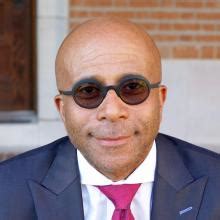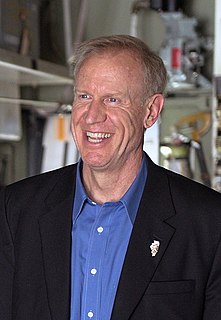A Quote by Madalyn Murray O'Hair
The churches rose to power on the income from tax-free property. What earthly -or heavenly- right have they got to enjoy a privilege denied to everyone else, even including nonprofit organizations? None! My contention is that with the churches exempted from property taxation, you and I have to pay that much more in taxes to make up for what they're not contributing.
Related Quotes
There's a separation of church and state. If you want the perks that churches have traditionally received, then abide by the rules. If you're going to be involved in the political process, even in soft ways, then surrender the privileges. Let ministers pay income tax on all of their income. Let churches pay income tax, let them pay property taxes. They can't have it both ways. You can't pat the politicians on the back, break the rules, and then get all these perks.
It is an absurd fiction that the churches are useful. They are nothing more than propaganda centers for superstitious faiths and doctrines. Church members have a right to believe in and propagate their various doctrines. But they should pay every item of the cost, of this propaganda, including fair taxation for all church property.
On a nationwide basis, I would guess that the various churches would have to pay annually an amount at least equal to the national debt. But it's impossible for me to make an exact estimate, because the churches hide their wealth in every way they can - deliberate falsification as to the value of property, registering it under phony names in order to obscure the fact that the Church owns the property.
Texas has no income tax, which is a big draw for corporate executives who do business there. But it's hardly tax-free. The property taxes are high for a Southern state. The sales taxes are high. One study found that the bottom 20 percent of the Texas population pays 12 percent of its income in state and local taxes.
Legislators cannot invent too many devices for subdividing property... Another means of silently lessening the inequality of property is to exempt all from taxation below a certain point, and to tax the higher portions of property in geometrical progression as they rise. Whenever there is in any country, uncultivated lands and unemployed poor, it is clear that the laws of property have been so far extended as to violate natural right.
If all those magnificent cathedrals with their valuable lands in Boston, Philadelphia and New York were taxed as they should be, the taxes of women who hold property would be proportionately lightened....I cannot see any good reason why wealthy churches and a certain amount of property of the clergy should be exempt from taxation, while every poor widow in the land, struggling to feed, clothe, and educate a family of children, must be taxed on the narrow lot and humble home.
As to the Income Tax, my opinion is that the needful revenue would be fairly and most fairly raised if paid by property, and by individuals in proportion to their property. A Property Tax should be an assessment upon all land and buildings, and canals and railroads, but not on property such as machinery, stock in trade, etc. The aristocracy have squeezed all they can out of the mass of the consumers, and now they lay their daring hands on those not wholly impoverished.
It was an easy thing to tax for a young country. And then gradually we moved to property taxes, manufacturing taxes, and the income tax was the answer to a populist demand: Let's go after the rich guys. We got into World War I, and they raised the rates and started taxing the rich. Then we got into World War II, and that's when they taxed everybody, because they just needed more revenue.
Politicians like to talk about the income tax when they talk about overtaxing the rich, but the income tax is just one part of the total tax system. There are sales taxes, Medicare taxes, social security taxes, unemployment taxes, gasoline taxes, excise taxes - and when you add up all of those taxes [many of which are quite regressive], and then you look at how they affect the rich and the poor, you essentially end up with a system in which the best off 20 percent of Americans pay one percentage point more of their income than the worst off 20 percent of Americans.
If you're a full-time manager of your own property - and full-time, according to Congress, is 15 hours a week - you can take unlimited depreciation and use it to offset your income from other areas and pay little in tax. One of the biggest real estate tax lawyers in New York said to me, if you're a major real estate family and you're paying income taxes, you should sue your tax lawyer for malpractice.




































